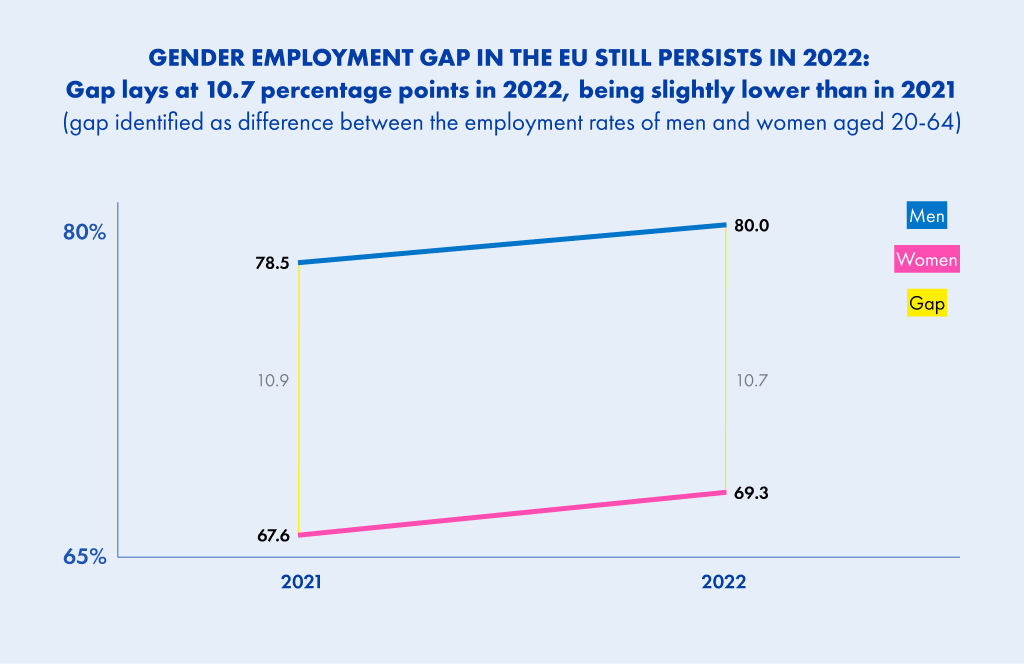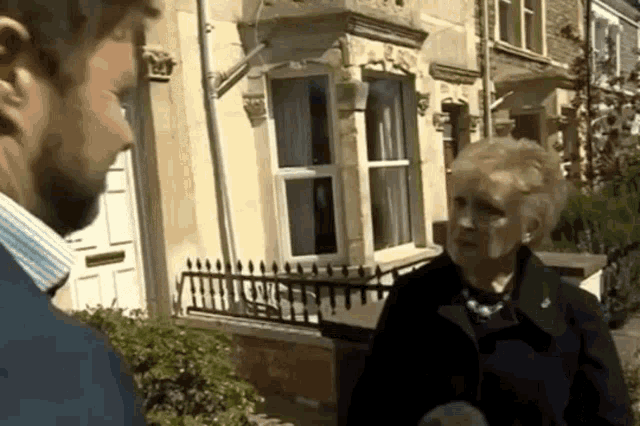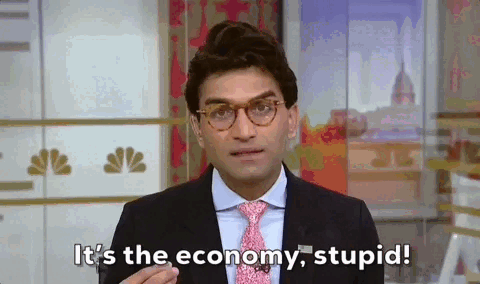Issue #149
Guten Morgen! Step right up, ladies and gentlemen, for some end-of-year turbulence starting with the 28th UN Climate Change Conference in Dubai, which kicked off with accusations of COP28 President moonlighting as an oil deal promoter, and President Biden rather skipping the event for festive lights. Meanwhile, in Europe, German Chancellor Olaf Scholz is juggling financial figures to clear unbalanced budget questions, and UK Prime Minister Rishi Sunak’s election date dance meets Conservative discord, record immigration figures, and a frosty row over the Elgin Marbles, creating a chilly political front. In this whirlwind of political theatrics, in his WOOM Charlie Napier from Atticus Partners sheds light on the UK Autumn Statement, where taxes nosedive and immigration take the spotlight. Speculation swirls about early elections, prompting Westminster’s political maneuvers. Is it truly all about the economy, or is this a multifaceted political circus? As for some good news, Germany and the Baltic States crafted an “Innovation Club,” setting the stage for a digital spectacle in the EU’s 2024 agenda. The digital spectacle awaits, with high expectations for a coherent and synergistic new Commission agenda in 2024. The stage is set, stay tuned! Anna Szilvia WHAT TO WATCH THIS WEEK: The COP-Chronicles: Accusations, Absences, and Critiques in the Climate Spotlight In the run-up to the 28th UN Climate Change Conference in Dubai, which started on 30 November and will run till 12 December 2023, there have been some remarkable headlines that were not only raising the pulse rate, but also caused a few chuckles. Shortly before the start of the Conference, Dr. Sultan Ahmed Al Jaber, President for COP28 UAE, faced some serious accusations, and according to media reports, he is said to have used his role to promote oil deals. Confidential documents leaked to the Centre for Climate Reporting suggest that the UAE oil company ADNOC is prepared to support fossil fuel projects in various countries. The authenticity of these documents is disputed by officials, and the BBC, which reported on the allegations, has been criticized for relying on “flawed” documents. Adding to the turbulence and further questioning the seriousness of COP28 for a sustainable future, US President Joe Biden has decided not to attend COP28 this year. Instead, he met with the President of Angola, João Manuel Gonçalves Lourenço, and then lit the lights of the National Christmas Tree. An unexpected decision that raised several questions and put Biden´s climate credentials under scrutiny. In addition to the international waves, in Germany, Fridays for Future was also speaking out. The climate protection movement sent an open letter to Federal Chancellor Olaf Scholz asking: “Mr. Scholz, where are you?” They appeal to the Chancellor to do more to finance the Paris Climate Agreement and basically argue that Germany’s climate policy is getting a review of “insufficient” from international observers, and as the fifth-largest emitter of greenhouse gases globally, that’s not just diplomatically awkward—it’s like showing up to a climate party without the cool, eco-friendly gift. The coming weeks therefore promise not only heated climate talks, but also some curious moments. We will stay tuned and keep you up to date! INSIGHTS FROM PARLIAMENT: Financial policy fair: The balancing act over the federal budget In the latest episode of the German political saga, Chancellor Scholz took the stage, with an eagerly awaited speech in political Berlin. Attempting to portray himself as a seasoned statesman amidst the chaos, Scholz was reacting to the Federal Constitutional Court´s decision unceremoniously declaring his supplementary budget unconstitutional and void. Despite his justifications and attempts at being a doer, a concrete roadmap for the 2024 budget remained elusive, leaving many wondering about the next steps. In a dramatic twist, Scholz acknowledged the need to explore budgetary spaces, set priorities, and, of course, limit expenditures, all hidden in the 17th minute of his 23-minute government statement. Other members of the traffic light coalition were more candid. Green MPs, for instance, spoke of a “mistake” and “misjudgment”, while the FDP was delighted that the Constitutional Court has “fundamentally strengthened” the debt brake. Nevertheless, for the opposition CDU/CSU under Friedrich Merz, the Chancellor’s shoes are “at least two shoe sizes too big”. After all, it is a real balancing act to observe the debt rule and at the same time secure urgent funding. THE BIG PICTURE: New Innovation Club in Town: Germany and Baltic States Forge Path for EU’s 2024 Digital Agenda Germany might not immediately spring to mind when considering pioneering digitization efforts. Perhaps that’s why the German Federal Ministry for Digital and Transport turned its attention toward the Baltic States to amplify its message and role in Europe. Collaborating with Estonia, Latvia, and Lithuania under the banner of the “Innovation Club”, Germany has crafted a comprehensive Nine-Point-Action-Plan. This document outlines proposals aimed at enhancing the European Union’s competitiveness and fostering a more innovation-centric digital landscape. The plan centers around crucial focal points, including the digital economy, advancing the EU’s data economy, ensuring effective platform regulation, bolstering cybersecurity measures, creating a less cumbersome digital environment for businesses, and strengthening digital literacy and skills. Sounds amazing, right? These collective proposals lay the groundwork for a fresh Digital Agenda slated for the upcoming European Commission in 2024. This raises the question: Will Germany assume greater responsibilities at the EU level? The specter of a potential French Commission President may be inducing unease within Germany’s ministries, propelling them to act preemptively ahead of the 2024 elections. Undoubtedly, digital issues will command significant attention within the new Commission’s agenda. Nevertheless, echoing concerns expressed in the paper, many assert that the new Executive should focus not merely on introducing fresh regulations but on finalizing the Digital Single Market to generate synergies and ensure the coherent implementation of all recent regulations and directives in the current legislative period. We will see to what extent they will live up to these expectation – the bar is set high! As the UK braces itself for a cold spell, tensions have become frosty between the Prime Minister, Rishi Sunak, and his MPs, with the Conservative election strategy being placed into disarray. Starting the week by telling his staff at the Party’s headquarters to prepare for a general election ‘as early as January’, the Prime Minister has now signalled that it will occur in October. This was brought to light at Prime Minister’s Questions in the House of Commons when Prime Minister’s colleagues asked for clarification on when they could hope to learn of the strategy. No answer was given by the Prime Minister. The unrest in the Conservative Party has continued across the board, as Conservative members spent the last week lamenting over the latest immigration figures, which hit a record of 745,000 in 2022. Conservative MPs called upon their own ministers to ‘act’, with some MPs on the right of the party calling the figures ’embarrassing’. With the Prime Minister taking a hard-line approach to immigration, forming a ‘5 point plan’ to curb immigration as part of his government strategy in late 2022, the new data will be a point of worry for him. The bad news that the Prime Minister has received this week continued to get worse, as the row with the Greek Prime Minister over the Elgin Marbles escalates. Sunak cancelled his meeting with his Greek counterpart, Kyriakos Mitsotakis, over the issue of the Parthenon sculptures and diplomatic ties have severely worsened over recent days. The Marbles, which were taken from Athens to London in the early 1800s have long been a sore point for the Greeks, but with Britain having all but refused to ‘give them back’, it has led to Greece accusing the UK of ‘barbarism’. The refusal to meet with the Greek Prime Minister was seen as an excellent opportunity for Sir Keir Starmer, leader of the Labour Party, to demonstrate his diplomatic skills. A Labour spokesperson claimed victory over the meeting. The Greek press also took a swing at the British Prime Minister, with one newspaper stating how it was ‘no surprise that the Greek PM met instead with Starmer, who is 20 points ahead in the polls. The rough and tumble of Westminster continues for another week… Source: ec.europa.eu Here are three appointments for next week that you should have on your radar: Taxes down, immigration up… As if a King’s Speech, major Cabinet reshuffle and the return of a former Prime Minister as Foreign Secretary wasn’t enough, this month saw the Autumn Statement, one of two major fiscal events of the year. Highlights included a decrease in personal tax, a commitment to the triple lock pension (a longstanding government promise on how to raise the value of publicly funded pensions) and a rise in benefits and the minimum wage. Whilst the merit of the tax change was debatable, with some arguing it was the wrong lever to pull, it was the timing of the announced tax cut that raised some eyebrows. Usually, taxes change at the new financial year, but this tax reduction is being rushed through for January, reducing the tax burden employees see in their payslips. There was much chatter in the immediate aftermath that this boosted the chances of an earlier General Election, in spring rather than autumn 2024, though the lack of a discernible polling boost for the Government in the week since makes it likelier that Downing Street will ‘play it long’. The overwhelming view in Westminster is that this was an overtly political financial statement. We’ll see whether the public are convinced whenever we head to the polls. All we are certain of is that this isn’t the last we’ll see of the Conservatives talking a big game on the economy, and Labour fighting them on their traditional turf. After all, it’s the economy, stupid… …or is it? One reason why the Autumn Statement now seems much longer than a week ago is because of how prominent immigration has been as a topic in November’s news. A combination of the Government losing in the Supreme Court on its flagship policy to tackle illegal immigration (centered on deportations to Rwanda), following days after the departure from Government of the then Home Secretary, and a record high net-migration figure being announced for 2022, has put the Government on the back foot and fearing electoral vulnerability on its right flank. Expect action to tackle both, rather than any of the other measures read out by the monarch at the start of November, to dominate Parliamentary business as we enter election year. Issue #149


FIRST, SOME SOLID INTEL:
AND WHAT’S UP IN GREAT BRITAIN?
TAKE A BREAK, GIVE YOUR EYES A REST:

LONG STORY SHORT:
OUTLOOK:
When?
What?
December 6th, 2023, Brussels
Cybersecurity@CEPS Summit
December 7th – 8th, 2023, Beijing
EU-China Summit
December 7th – 8th, 2023, Germany
Handelsblatt Industry Summit
WHAT’S ON OUR MINDS:




